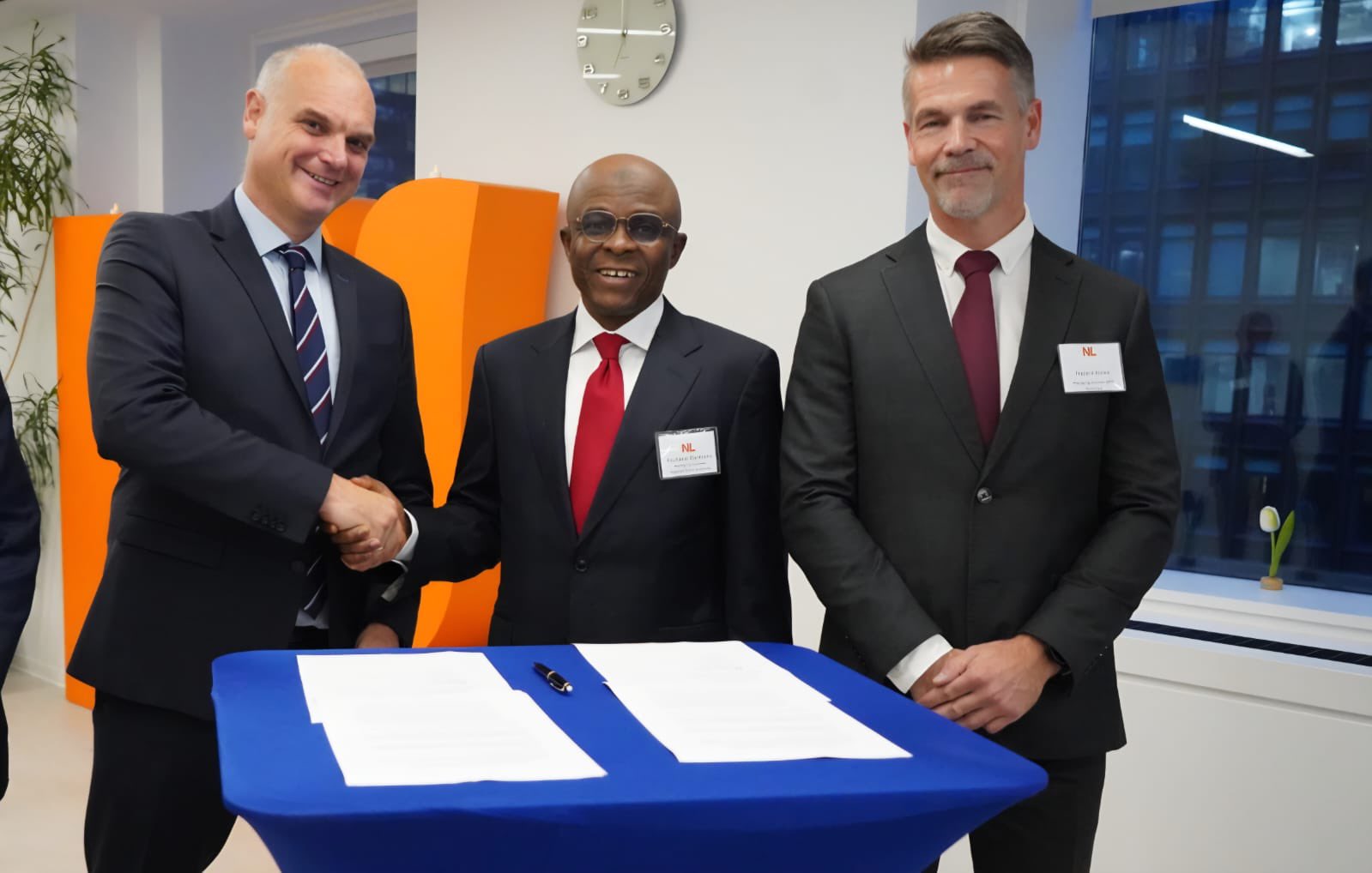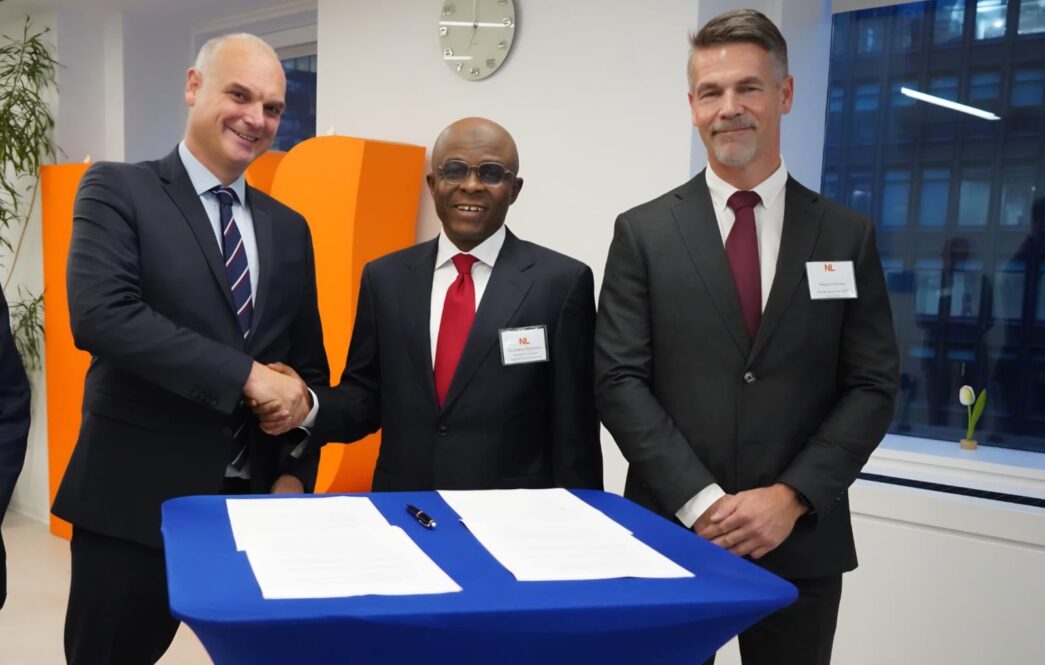The Nigerian Ports Authority (NPA) and APM Terminals’ West African Container Terminal (WACT) in Onne has signed a memorandum of understanding (MoU) to accelerate decarbonisation across Nigeria’s port and transport ecosystem.
In a statement on Tuesday, APM Terminals said the MoU, signed on September 22 at the Dutch consulate in New York, provides a roadmap for electrifying containerised freight in line with the policies of the federal ministry of marine and blue economy.
Speaking after the signing, Frederik Klinke, chief executive of APM Terminals Nigeria, said the agreement positions Nigeria to lead west Africa’s transition to low-carbon logistics.
“Nigeria is Africa’s largest economy and trade hub, and our research shows us that the country can leapfrog fossil-fuel infrastructure and adopt proven electric technologies,” Klinke said.
Advertisement
“We are therefore very optimistic about our joint plans to develop a phased roadmap towards an electrified future for container logistics.”
Jeethu Jose, managing director of WACT, said partnerships remain central to APM Terminals’ strategy of delivering long-term growth and value in its markets.
“Our investments are for our shared future and for the people of the region. We look forward to driving this project alongside our stakeholders in the port industry,” Jose said.
Advertisement
Also speaking, Abubakar Dantsoho, managing director (MD) of NPA, said the development would make Onne Port the first green port in Nigeria, adding that it would promote decarbonisation efforts within the transportation ecosystem.
“This will make the Nigerian Ports Authority the leader on the continent in terms of sustainable port operations,” he said.
The NPA MD commended APM Terminals for the partnership, which will be fully funded by the company at a cost of $60 million.
He expressed hope that the initiative would serve as a model for other ports across Africa.
Advertisement
According to the statement, the agreement builds on a study APM Terminals presented to Nigeria’s vice-president at the decarbonising infrastructure in Nigeria summit in July.
“The study concluded that moving from fossil fuels to electrified container freight could lead to private investment, create skilled jobs, and deliver a more reliable energy supply,” the statement added.
APM Terminals said the transition would require strong cross-sector coordination and close collaboration between public and private stakeholders.
Advertisement










